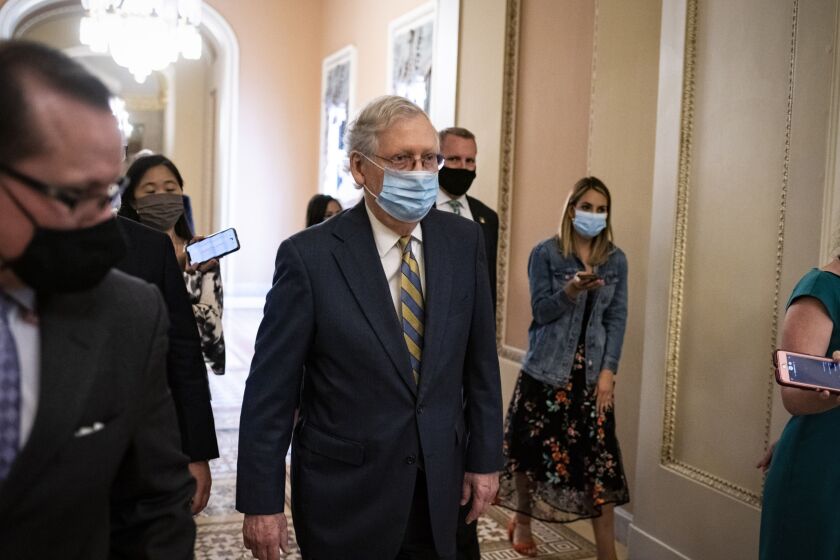“Everyone is convinced that accounting standards are simply too boring and too intricate for anyone to pay attention to.”
Those were the opening remarks of Rep. Brad Sherman, D-Calif., during a House Financial Services subcommittee hearing earlier this year with accounting standards officials. Sherman, a CPA and the chairman of the subcommittee, is absolutely right. To most Americans, accounting is boring and appears too menial to spend time reviewing.
However, when looking at the astonishing impacts accounting standards have on the U.S. and world economy, everyone would be well served to resist glazing over the rules, and pay close attention to what’s brewing in Norwalk, Conn., where the Financial Accounting Standards Board is headquartered.
Paying close attention, however, is not sufficient. FASB is a self-appointed private entity operating with impunity and virtually no supervision from Congress or the federal financial regulators. Congress must act soon to ensure the Securities and Exchange Commission and other financial regulators have proper oversight of this powerful, private-sector organization.
Lack of oversight of FASB has resulted in devastating impacts on the nation’s economy in the past and will continue to do so in the future if safeguards are not enacted soon.
Senate Majority Leader Mitch McConnell on Tuesday blocked an attempt by Democrats to force quick action increasing direct stimulus payments to $2,000 as President Donald Trump warned that failing to act now amounted to a “death wish” by Republicans.
With only a few days to go before the end of a difficult year, some accountants and tax professionals are still hoping to finish up some perplexing issues for their clients before New Year’s Day.
Republicans will likely block Democrats’ attempts to have the Senate follow the House in boosting stimulus payments for most Americans to $2,000, even though President Donald Trump backs the bigger checks.
In late 2007, financial institutions were forced to implement FASB’s so-called mark-to-market accounting standard, which required banks to account for the fair value of an asset based on the current market price.
What FASB failed to consider was the effect this accounting standard would have on macroeconomic conditions. So when the financial crisis hit in 2008, institutions were forced to write down nearly $2 trillion in assets, causing banks across the country to shut down and creating the largest loss of personal wealth in world history.
In a reluctant recognition of the damage done by the mark-to-market standard, FASB reconsidered it in 2009 and proposed more appropriate guidelines on how to value assets.
Just a decade later, financial institutions are facing another unprecedented situation due to the economic shutdown caused by the coronavirus pandemic.
And once again, accounting standards officials and regulators are poised to make the situation much worse. In a similar fashion to the mark-to-market standard, FASB in 2016 issued its current expected credit losses, or CECL, accounting standard, which requires financial institutions to estimate and then reserve immediately for the anticipated lifetime losses of a loan. It basically requires banks to predict and reserve against losses spanning as much as 30 years into the future for mortgages.
Just like 2007, FASB issued this standard with no economic study of how CECL would affect the economy or access to credit for consumers and small businesses.
The CECL standard is exacerbating the current downturn and resulting in financial institutions dramatically increasing their reserves, taking billions of dollars out of the economy. This ultimately means consumers and small businesses will have considerably less access to credit.
Fearing a repeat of 2008, Congress included a provision in the recent coronavirus relief package allowing financial institutions to suspend the implementation of CECL. Bank regulators also issued an interim rule preventing CECL from impacting the regulatory capital of banks for two years. It should be noted that FASB opposed both efforts.
While these are good measures, Congress should come to the same realization that industry, stakeholders, investors and regulators already have: The CECL standard does not work, is incredibly damaging and needs to be eliminated.
A House bill (HR 7914) was recently introduced to do just that. Not only does the bill ensure the ill-advised accounting standard does not wreak any additional havoc on the economy, it will be a no-cost injection of capital into the economy through providing relief to the institutions that have been forced to drastically increase reserves.
While eliminating the CECL standard is essential to preventing the government from hampering the recovery — or making matters even worse — simply doing no harm by ending it is not enough.
Congress and regulators must take proactive measures to ensure financial institutions are able to assist America’s small businesses and families in righting the ship.
In order to do that, financial institutions must have the flexibility to work with customers whose accounts have been harmed by the virus and subsequent economic shutdown. Without forbearance for institutions, examiners will have very little alternative other than to force financial institutions to negatively classify loans and even write them off entirely.
Banks will not be legally allowed to work with their customers but instead be forced to cut their losses and leave consumers, who have fallen on hard times through no fault of their own, out in the cold.
In response, a second proposal called the Financial Institution Forbearance Act is a bipartisan bill that allows depository institutions to move assets that were modified due to the coronavirus impact to a separate account on the balance sheet where it will not be criticized by examiners or accountants for a temporary period of time.
This additional time will also give families, businesses and banks time to work together to stabilize these loans and allow hardworking Americans to get back on their feet. Without it, we will almost certainly experience the collapse of local markets resulting from wholesale shutdowns of lines of business, as seen in the 2008 recession. This bill protects the economy from further damage without spending a penny of taxpayer money.
The resiliency and ingenuity of the American economy can overcome any obstacle put in its way. However, regulation and complacency should not be allowed to slow the economic rebound. Congress must act to allow financial institutions to help their customers and save the thousands, if not millions, of jobs at stake.
These bills are easy solutions that will not only help banks, businesses, local communities and millions of hard-working Americans, but it will be a catalyst for economic recovery once the pandemic is behind us.
William M. Isaac, a former chairman of the Federal Deposit Insurance Corp. and Fifth Third Bancorp, is co-chairman of the Isaac-Milstein Group.







